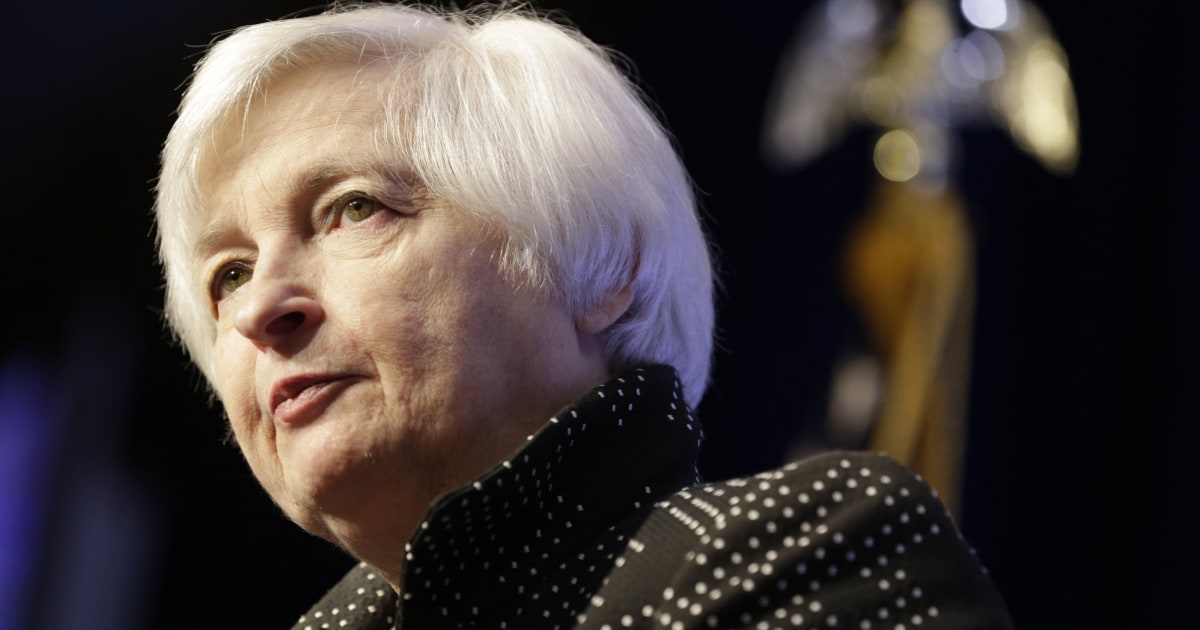Former Federal Reserve Chairman Janet Yellen was confirmed as secretary of the Treasury on Monday, with the Senate voting 84-15 to make her the first woman to lead the department.
Yellen takes office with some advantages: she is well known and respected among lawmakers on both sides and has experience with enormous economic challenges. Yellen was expected to be confirmed easily after his nomination was approved by the Senate Banking Committee 26-0 on Friday.
New York native Yellen received her Ph.D. from Yale University and taught at Harvard University, London School of Economics and University of California, Berkeley, in addition to several positions at the Fed before becoming the first woman to drive it in its history in 2014.
“As president of the Federal Reserve, Yellen worked to build constructive relationships with members of the House and Senate,” said Mark Hamrick, senior economic analyst at Bankrate. “In that position, it was important to avoid going beyond certain political lines.”
Yellen’s role is inherently political – meaning that she will have to thread the needle when engaging with lawmakers.
“The less Yellen politics is, the more credibility it will have with the financial markets,” said Stephen Myrow, managing partner at political research consultancy Beacon Policy Advisors.
Yellen’s term is sure to be a marked departure from that of his predecessor Steven Mnuchin, the investment banker who oversaw the Treasury under former President Donald Trump.
Yellen, the product of middle-class education in the Brooklyn neighborhood of New York, cited the critical – though often invisible – role that macroeconomic principles play in the daily well-being of American families. In the Treasury Department, it must tackle the roots of the country’s growing inequality, along with the factors that aggravate it.
Yellen spoke about economic inequality and the “K-shaped” recovery at his hearing before the Senate Banking Committee, making the economic case that facilitating broader access to financial stability not only benefits Americans individually, but also strengthens economy as a whole.
“It will be your job to help deliver the next round of economic stimulus, or relief, legislation at a high price to members of the Senate,” said Hamrick.
Mark Zandi, chief economist at Moody’s Analytics, said: “Secretary Yellen will be concerned with using vigorous fiscal policy to support strong economic growth that will benefit even the most pressured low-income families and minorities. She has long advocated the approach the distribution of income and wealth, and now she can act on it. “
She must also be an advocate for President Joe Biden’s other long-term political goals, such as increasing green energy production. Yellen, a member of the Climate Leadership Council, an international policy institute, expressed support for a carbon tax and testified before Congress about an economic justification for reducing greenhouse gas emissions.
“Yellen’s supervision of the Fed during a critical part of the Great Recession’s economic recovery will be helpful to her.”
Yellen will work closely with current Fed Chairman Jerome Powell to help support the fragile recovery, which has begun to issue warning signs as the pandemic continues to get out of hand in many parts of the country.
Political observers say her Fed oversight during a critical part of the Great Recession’s economic recovery will be useful to her, as the pandemic continues to weigh on the labor market and economic activity, as well as the support it has cultivated throughout the political spectrum – a rare commodity in a polarized Washington.
Since the early days of the pandemic, Powell’s Federal Reserve has leveraged its power to stabilize the financial system. Economists widely agree that interventions saved markets from a potentially catastrophic collapse in the spring – but there are limits to what the Fed can achieve with monetary policy, a point that Powell has often made, along with increasingly dire warnings for legislators on the and the long-term consequences of not acting quickly on fiscal stimulus legislation.
In the Department of the Treasury, Yellen will be positioned to put more pressure on a strongly divided Congress.
“The Treasury Secretary’s most powerful tool is the pulpit of intimidation. For this to be effective, however, the Treasury secretary needs to have credibility, ”said Myrow. “I think the strong bipartisan support that her nomination has received, despite the hyperpartisan environment, is proof of the reserve of credibility she brings with her to the position.”
